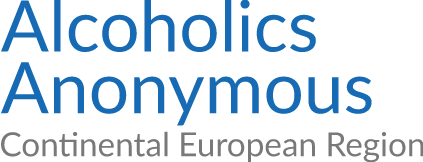The recent Health Liaison Seminar in York brought up some interesting discussion on how AA members can best communicate with professionals working in the healthcare field. Over two days, members shared some great ideas, and it’s worthwhile expanding on a few of them here.
We should begin by sharing what the current impediments are to members hoping to communicate with health care professionals. These are as follows:
- AA is a religious cult. Misinformation has created an idea that we are members of a religious cult. Some suggest downplaying the spiritual aspect of the program. When required, it should also be pointed out that members are free to choose their own concept of God.
Note: there is an important study being conducted at Chester University (the High Power Project) which aims to dispel such myths. - Members must be sober to attend. This should be addressed directly – the only requirement for membership is a desire to stop drinking. Many of us have struggled to put down the drink in our efforts to get sober.
- Sexual predatory / no safe guards – This is a difficult topic to address, other than to explain that while AA can never give a blanket guarantee that sexual predators do not exist, such cases are rare. In this regard, AA is no different to the rest of the community.
To alleviate negative preconceptions, experience shows that we should stress the idea that AA is an asset to the community. We should remind our audience that AA is available right now and that there are thousands of meetings across the UK and Europe taking place on a daily basis. We should also stress that AA is free to those who wish to attend. Unlike many other health related programs, AA comes at no cost to the tax payer, either.
The weekend focused on the innovative ways members were reaching out to the wider community. For example, some groups have invited professionals to attend what they call ‘demonstration meetings’. The first half of these meetings run just as open meetings do. In the second half however, those visiting were invited to join in and discuss a mutually relevant topic. Note that CER has conducted two of these ‘demonstration meetings’ at recent conferences for mental health conferences.
More conventional approaches were made by others who utilized speakers supported by power point presentations. There are plenty of existing powerpoint presentations that target the healthcare community. You’ll find one on the Health section of the Alcholics Anonymous Great Britain website by clicking here.
Here are some of the useful tips aired over the weekend for those of us hoping to reach out to doctors:
- If you wish to make an appointment to speak to your doctor about AA, try going through the practice manager.
- Suggest a time inside office hours – the doctor wants to get home at the end of the day as much as you do.
- Don’t bother writing letters. Experience shows they don’t work.
- Don’t visit alone. At least two members should be on hand.
- Try to limit the talk to around 40 minutes and invite questions at the end.
- Don’t focus on the spiritual side of the program too much.
- Often, a more receptive audience is trainee GPs accessed through hospitals etc.
- One clever group prints out “Certificates of Attendance” slips that doctors can add to their resumes.
- Take literature packs and leave some for patients.
- Consider printing a business card with AA contact details.
- Consider approaching hospital chaplains, university councilors and mental health specialists.
Finally, there are plenty of resources available to anyone seeking to communicate with health care professionals. A good place to start is www.alcoholics-anonymous.org.uk. Click on Members/Document Library/Health/Health Resources.
Toby T.
CER Health Liaison Officer
Editor’s note: this article has been published in accordance with our ArenA Editorial Policy.
